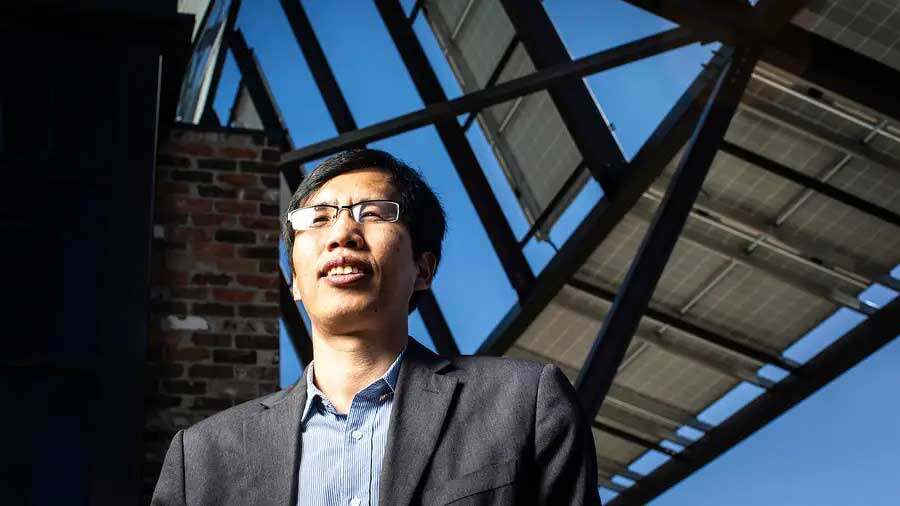Professor Zhenjun Ma awarded for work on decarbonising the heating and cooling of buildings.


Professor Zhenjun Ma has been named the winner of the prestigious Excellence in Heating, Ventilation, Air-conditioning and Refrigeration (HVAC&R) Research Award at the 2024 AIRAH Awards, held on Thursday, 21 November 2024.
The Australian Institute of Refrigeration, Air Conditioning and Heating (AIRAH) honoured Professor Ma, from the University of Wollongong’s (UOW) Sustainable Buildings Research Centre, for his groundbreaking research on decarbonising HVAC systems. His work focuses on leveraging solar energy and thermal energy storage to develop sustainable solutions for the heating and cooling of buildings.
Driven by global challenges such as diminishing fossil fuel reserves, rising energy demand, and the undeniable impacts of climate change, Professor Ma’s research emphasises the urgent need for innovative HVAC solutions.
“The worldwide HVAC power consumption is forecast to surge 33-fold by 2100, so it’s imperative to develop innovative HVAC solutions, systems, and technologies that can meet this rising demand while accelerating the transition to a low-carbon energy future,” Professor Ma said.
Since 2012, Professor Ma and his team have pioneered numerous advanced HVAC systems incorporating photovoltaic thermal collectors, thermal energy storage, membrane distillation, and transpired solar collectors.
These innovations have significantly advanced the understanding of solar energy integration into HVAC systems, optimised the use of thermal storage, and identified opportunities to enhance HVAC-related flexibility.
Receiving the award, Professor Ma expressed his gratitude for the recognition of his team’s long-standing dedication to decarbonising buildings and their HVAC systems.
“This award acknowledges our long-term efforts in developing innovative solutions for integrating solar and thermal energy storage to reduce carbon emissions in the built environment,” he said.
Looking ahead, Professor Ma and his team plan to explore strategies for increasing the demand flexibility of buildings, supporting power grid operations, and employing digital intelligence to achieve net-zero energy transitions and deep decarbonisation.
The AIRAH Awards gala dinner celebrated Professor Ma’s contributions alongside other leaders in sustainable building practices.








































